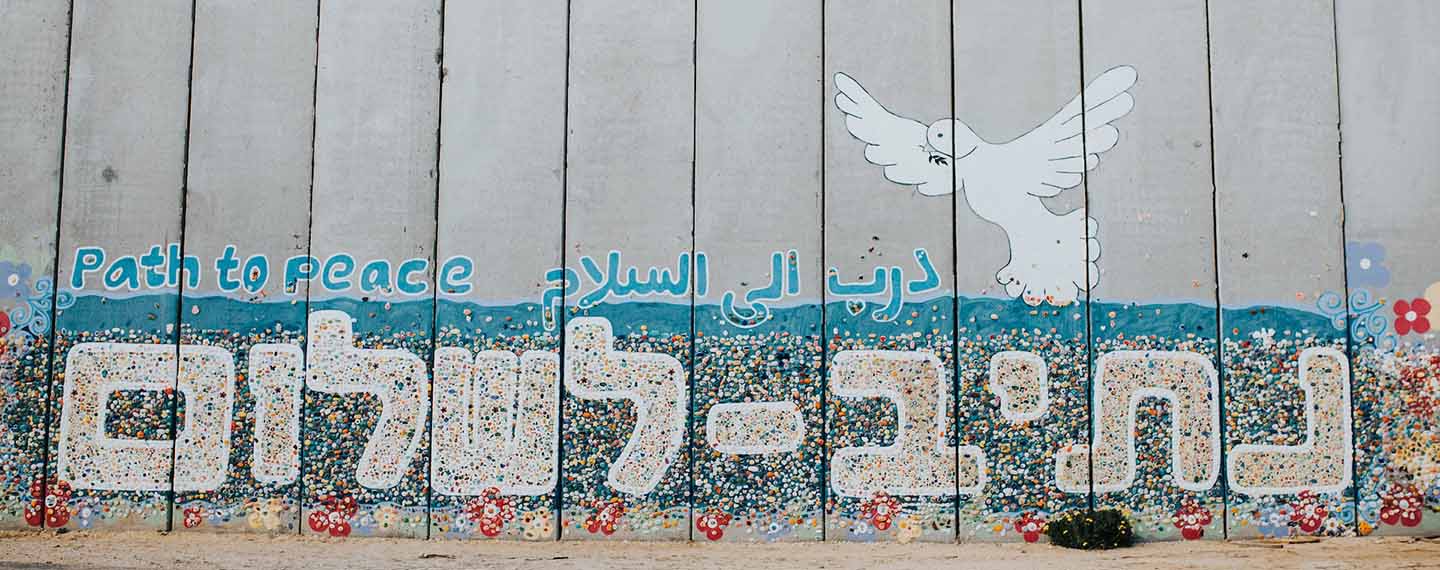The Middle East and the entire world need an alternative to the cyclical violence between Israelis and Palestinians. The risks of using the recurring formula –tested so many times with increasingly monstrous results– of occupation, terrorism, collective punishment, devastation and hatred are too high. The alternative to violence can only come through politics.
A profound change is needed in the way the conflict is approached if the goal is to find a solution that brings hope and security to both Israelis and Palestinians.
The scale of human and physical destruction after the unprecedented outbreak of war, following the Hamas attack against Israel on 7 October and the subsequent massive Israeli assault against the Gaza Strip, is confirmation of the failure of the old formula that avoids the two-state solution. Four realities have become clear: (1) the Israeli-Palestinian conflict was not settled after the normalisation between Israel and certain Arab countries; (2) this conflict retains a high capacity to destabilise the entire Middle East and its neighbourhoods; (3) trying to manage it through declarations of intentions disconnected from reality only contributes to the aggravation of its consequences; and (4) the West uses double standards when it comes to war crimes, depending on where they are committed and by whom.
A profound change is needed in the way the conflict is approached if the goal is to find a solution that brings hope and security to both Israelis and Palestinians. This involves getting both parties back to the negotiating table in less unbalanced conditions than until now. A step that would modify the perverse vicious circle of recent decades would be the recognition of Palestine as a state by the Western countries that have not yet done so, as well as by the UN, with the support or abstention of the US at the UN Security Council. Such a recognition would weaken Hamas and its supporters, especially if a Palestinian Authority with democratic legitimacy were to be renewed and strengthened.
Israel is not a normal state. It lacks defined borders according to international law. It is recognised by only 163 of the 193 UN member states. Of the 15% of countries that do not recognise Israel, many are among its Arab and Muslim neighbours who thereby show their rejection of the occupation of the Palestinian territories.
Palestine is an even less normal state. Only 139 UN members (72%) recognise it, including two permanent members of the Security Council (China and Russia). Among those who do not recognise the State of Palestine, the majority are in Western Europe, North America and the small islands of the Pacific. It is important to note that Palestine has recognised the State of Israel since the signing of the Oslo Accords in 1993, but recognition is not reciprocal.
It is paradoxical that the Western countries that so often repeat that peace between Israelis and Palestinians must be based on the ‘two-state solution’ are those that only recognise one of them (Israel) but not the other (Palestine). This is mainly due to the pressure that several of these countries receive from Israel and the US. On the other hand, the EU and its member states have contributed billions of euros to the Palestinians since the peace process began at the Madrid Conference in 1991, in theory to favour the two-state solution under the formula of ‘land for peace’. It is surprising that, after such a disbursement, only nine of the 27 EU countries recognise the Palestinian state (only Sweden did so while being a member of the EU, in 2014, while the other eight did so before joining).
Following an escalation of violence in Gaza during the summer of 2014, much smaller than that taking place in 2023, several European parliaments, including those of France, Portugal, Spain, Italy, Greece, Luxembourg, Ireland and the UK, approved motions asking their governments to recognise Palestine as a state. The European Parliament also voted by a large majority in favour of a non-binding resolution calling for the recognition of the Palestinian state as a way of reviving the moribund peace process.
In the case of Spain, Parliament voted in November 2014, almost unanimously and with the support of all parliamentary groups, a non-law proposal urging the Spanish government to recognise Palestine as a state. Also, some autonomous parliaments, with regional governments of different political parties, issued institutional statements supporting recognition. It should be borne in mind that it was a left-wing Spanish government that recognised the State of Israel in 1986, while a right-wing one voted in favour of recognising Palestine as a non-member observer state of the UN in November 2012.
The world must recognise the difference between the Palestinians and Hamas.
Although the conditions for the proclamation of an independent and viable Palestinian state do not exist today, its recognition by more Western countries would be a decisive step to break the current vicious circle of destruction and hatred, undermining the position of the most radical on both sides. There are many Israeli voices calling for the main EU countries to make such a decision, as they see an independent and democratic Palestinian state as the best guarantee for Israel’s security. Furthermore, mutual recognition between Israel and Palestine would normalise the situation of the Israeli state with the 57 Arab and Muslim countries that form the Organisation of Islamic Cooperation (the second-largest intergovernmental organisation after the UN), whose population accounts for almost 25% of the entire world population. That incentive for Israeli society is the basis of the 2002 Arab Peace Initiative, which is summarised in three points: (1) security for Israelis; (2) statehood for Palestinians; and (3) prosperity for both peoples and their neighbours.
The world must recognise the difference between the Palestinians and Hamas. There is an unexplored formula to end this fundamentalist movement. It consists of applying international law, offering international security guarantees to Israelis and Palestinians, normalising Israel’s situation in its neighbourhood, giving hope to the Palestinians and recognising their humanity. It must be understood that Hamas is the result of the failure of politics and the intentional weakening of the Palestinian Authority by the successive Israeli governments led by Benjamin Netanyahu.
As the EU High Representative for Foreign Policy, Josep Borrell, expressed at the recent Regional Forum of the Union for the Mediterranean: ‘Hamas is an idea. You cannot kill an idea unless you can prove you have a better one’. Hamas –or any other extremist organisation that might emerge in the future– feeds on hopelessness, injustice, hatred and double standards. In the absence of hope for peace and dignity for the Palestinians, Israelis will have no security and their country will adopt increasingly extremist policies, further deepening its internal fractures and putting international peace and security at risk.
(*) This analysis was originally published in the daily El Mundo on 6/XII/2023.
Elcano Comments
This is a new initiative of the Institute that aims to offer analyses by experts on topics that are within the scope of our research agenda. They are published on no regular basis but as opportunity arises in accordance with the advice of the broader academic community in cooperation with the Elcano Royal Institute.



